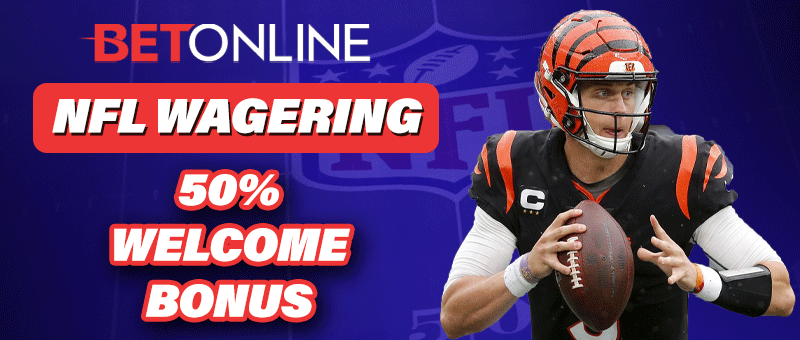Last updated on: January 24th, 2024
What Is The GAME Act?
Lost in the debate about sports betting recently was the congressional GAME Act. What is the GAME Act? The GAME Act, which stands for the Gaming Accountability and Modernization Enhancement Act, is a nonsensically named attempt on the part of New Jersey Rep. Frank Pallone, Jr., to establish an alternative avenue to sports betting legalization if the state’s Supreme Court challenge of the Professional and Amateur Sports Protection Act (PASPA, 1992) didn’t bear fruit. The GAME Act – aka HR 4530 – would have effectively repealed PASPA if given the opportunity.
Naturally, the SCOTUS overturned PASPA as unconstitutional and in violation of both the 10th Amendment and the long-standing governmental “Equal Sovereignty Doctrine”, rendering the GAME Act moot. However, given that the proposal was debated in Congress for an entire session and garnered lots of bipartisan support nationwide, perhaps the bill had some small influence on that Supreme Court decision. We shall never know. Now, the question is whether or not the GAME Act – or something like it – will rise to replace the now-defunct PASPA. The federal government has made no secret of its desire to continue regulating legal sports betting throughout the country (which is beyond their purview, to begin with, but that’s a different story).
| Rank | Sportsbook | Bonus Offer | Play Now |
|---|---|---|---|
| 1 |  |
Exclusive 50% Bonus Code up to $1000!Read Review | BVD1000 in Cashier |
| 2 |  |
50% Up To $1,000Read Review | Visit BetOnline! |
| 3 |  |
50% Up To $1,000 Read Review | Visit MyBookie! |
| 4 |  |
100% Up To $300Read Review | Visit Xbet! |
| 5 |  |
50% Up To $1,000 Read Review | Visit SportsBetting! |
What Will Happen If A Measure Like The GAME Act Is Passed?
The GAME Act missed out on its opportunity for success but a similar bill could see its way into legislation. Since PASPA was overturned and the federal government hasn’t replaced it with anything yet, many states have taken the initiative to set up their own sports betting rules and regulations. The GAME Act had specific provisions in its language that all states in the country would have the ability to establish, monitor, and regulate its own wagering industry, and it also codified the right of the states to individually offer Internet-based sports betting to residents. This would all still be geo-fenced in accordance with the Interstate Wire Act (1961) and the Unlawful Internet Gambling Enforcement Act of 2006 (UIGEA), but since those federal laws were not also overturned by the Supreme Court, the states must adhere to them anyways.
The only real thing a law like the GAME Act (or whatever replaces it) brings to the table is perhaps a flat “integrity fee” system, which local state sportsbooks vehemently oppose near universally, as do most of the states that have already legalized sports wagering. Plus, there’s nothing stopping any of the major US sports leagues (NFL, NCAA, MLB, NBA, NHL) from individually negotiating “Integrity Fees in legal sportsbooks” with any state they wish to lobby for the privilege. By the end of 2018, 8 states were offering brick-and-mortar sports betting services. Other states legalized the pastime before the end of 2018, but their front-facing betting lounges were delayed a bit into 2019.
How Would The GAME Act Help The States?
Prior to the Supreme Court’s PASPA ruling, the GAME Act would have significantly increased the autonomy of each state by allowing them to offer sports betting on their own terms. But the SCOTUS decision paved the way for this state-dictated sports betting legislation without additional restrictions. If the GAME Act passed now, it would actually harm the states far more than it would help. They would have to cede much of their regulatory autonomy to the federal government, which proved for 25 years under PASPA that it has no ability to properly regulate sports betting. The current system is vastly superior for all involved parties; even the federal government sees more financial benefit under the post-PASPA rules.
How Would The GAME Act Impact Daily Fantasy Sports?
One of the areas the GAME Act differs in from previous gaming-related laws is its classification of daily fantasy sports (DFS) as gambling, something not even the UIGEA did, even as it almost entirely dismantled the online poker industry. The DFS industry often uses the UIGEA’s differentiation between daily fantasy contests as “games of skill” (rather than constituting gambling, which typically comprises “games of chance”) as a legal defense against anti-gambling legislation that could keep fantasy websites out of certain state markets.
This led to the unintended consequence of the GAME Act losing support from the professional sports leagues, which have softened their stance on sports betting in light of the practice’s increasing popularity and the PASPA overturn. The leagues have, for the most part, formed solid working relationships with the major DFS operators, which professional sports executives view as partners in driving engagement with their dedicated fan bases. That being said, if something like the GAME Act passes, it would not necessarily mean that DFS would be in any danger of being unable to operate in any state market. In fact, the fantasy sports industry could see a boom like it never has before by opening up the possibility of integrating itself into the casino industry that would also likely get a boost by the passage of the law.
Similar GAME Acts To Pass In The Future?
The GAME Act failed to be a success and any future legislation with likely fail as well. Lawmakers understand legal sports betting is a lucrative market, providing revenue. This is the goal of any legal sports wagering industry in the nation.
Will The GAME Act Pass Into Law?
As things currently stand, the answer is “no.” Since PASPA’s repeal, The GAME Act is obsolete. That doesn’t mean that the federal government won’t make any plays though. They could not like the “non-unified” sports wagering industries. But, it is unlikely anything moves forward as the states’ industries are popular. The Consumer Protection and Sports Integrity bill was the closest thing to the GAME Act. It would have:
- Prohibited anyone under 21 from betting on sports. (Many states – particularly those with tribal gaming presences – set their age to 18. Schumer conveniently omits any discussion re this point)
- Disallowed “targeted advertising” to “young people” (Part of the AGA’s recommendations in 2023)
- Force states and sportsbooks to employ “approved” sporting data providers. (Some states with legal sports betting have regulations supporting official data. Most don’t request it in their laws.
- Have states share all their data with the federal government to combat “match-fixing.
- Create a set list of “approved” wagers, bet types, and sports for any leagues in question. (States vary with their sportsbook offerings. WWE betting became a hot topic of this in 2023).
The Game Act FAQs
Will The Federal Government Draft Another Sports Betting Bill?
It doesn’t seem likely as they have been bystanders for the most part at this point. The Federal Government does not seem interested in regulating sports betting nationwide. Popular sports betting legislation has come from the state level. This will likely continue as the path after the repeal of PASPA.
Would Sports Leagues Have Preferred The Game Act?
Leagues like the NCAA have already voiced being on board with a nationwide federal sports betting law. These leagues, however, want a government mandate against sports betting entirely. Other leagues would love to have sports betting law that would force sportsbooks to use official league data in an effort to convert revenue to the leagues. A law like the Game Act may not be exactly what sports leagues want, but if it is pushed, it would be expected to be backed by many leagues.
How Would The Game Act Have Affected Sportsbooks?
The Game Act would have forced us sportsbooks to use official league data. This would have cost the sportsbooks extra to obtain and those sports betting venues or apps would have just passed along that cost to the consumer in the form of less appealing betting lines. It also would have given the leagues the power to restrict certain bet types which would have severely limited a sportsbooks offerings.




